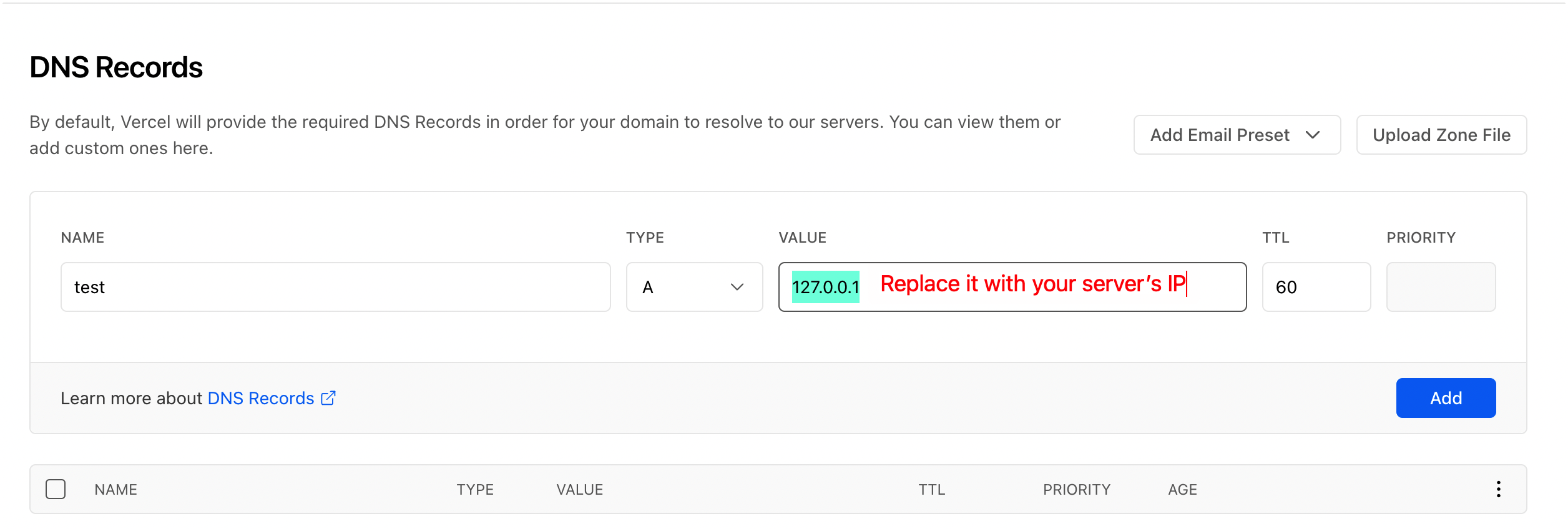Self-hosted
You can run Chirpy on your server, it's exactly the same product as our Cloud solution, but you have to install, host and manage your own infrastructure while the Cloud version we manage everything for your ease and convenience.
Chirpy is designed to be self-hosted with Docker, although you don't have to be a Docker expert to use our self-hosted version, but you should have basic knowledge of command-line, Docker and Linux to setup your own Chirpy instance.
If you have issues or questions with the self-hosted version, you can reach out to our community support on our GitHub discussions.
Version management
Chirpy follows semantic versioning: MAJOR.MINOR.PATCH
You can find available Chirpy versions on DockerHub. The default latest tag refers to the latest stable release tag.
Version changes are documented in our GitHub release. Please note that database/graphql schema changes require running migrations when you're upgrading.
Requirements
Hardware
You need 2 Linux servers (virtual or physical machines) to host Chirpy app server, and Hasura data server. Chirpy server needs at least 1GB RAM, 1 CPU core, and 10GB storage, while Hasura server needs 1GB RAM, 1 CPU core, and 20GB storage.
We've tested this on 2 minimal spec DigitalOcean(affiliate link) droplets but any hosting provider works.
Softwares
You need to generate all files on Hasura server and run docker containers, thus you need these softwares installed on your Hasura server:
- Docker v20.10.18+ & Docker Compose v1.27.4+, follow this docs to install
- Nodejs v16.17.1+, npm v6+, follow the nvm doc to install
The Chirpy server must have Docker & Docker Compose installed, but it doesn't need the other software(e.g. Nodejs).
Domains
You need 2 domains pointing to your servers before you start, one for Chirpy app, and the other one for Hasura.
For example: you can add a A record to your Vercel Domains:

Our main domain is chirpy.dev, thus we can visit our website at https://test.chirpy.dev once we have our servers running. Note: Save the server/ip -> domain map, and run correct commands on correct servers, or your servers may not work.
Other DNS providers have similar settings, you can find the docs on their website.
Setup Hasura server
On your Hasura server run the following commands to generate docker compose and configurations files, run a Hasura server and migrate Hasura database/metadata:
npx @chirpy-dev/docker-cli init <your-chirpy-domain> <your-hasura-domain>You can visit <your-hasura-domain> to check if the server is running.
After the initialization, you can find these 2 sub-folders in your current folder, like this:
.
├── chirpy
│ ├── Caddyfile
│ └── docker-compose.yml
└── hasura
├── Caddyfile
├── config.yaml
├── docker-compose.yml
├── metadata
│ └── <files>
├── migrations
│ └── <files>
└── seeds
└── <files>You need to copy ./chirpy/* files to Chirpy server. You can copy 2 files manually or use command like scp.
Setup Chirpy server
cd to the folder that saves the docker file, and run the following commands to start a docker container:
docker compose up -dYou should be able to visit <your-chirpy-domain> if everything works well. Happy hacking! 🎉
Add more config to Chirpy - Optional
You may find there are some unset configurations in Chirpy's docker-compose.yml, you can tweak them manually to suit your needs.
version: '3'
services:
chirpy:
image: devrsi0n/chirpy
environment:
# ... omit preset variables
# Optional, your Plausible server's domain
NEXT_PUBLIC_ANALYTICS_DOMAIN: ${NEXT_PUBLIC_ANALYTICS_DOMAIN}
# Optional, used by email notification/welcome letter. Only support sendinblue.com currently. PRs welcome!
EMAIL_API_KEY: ${EMAIL_API_KEY}
# Optional, GitHub auth id, apply an app here: https://github.com/settings/apps/new
GITHUB_CLIENT_ID: ${GITHUB_CLIENT_ID}
# The paired secret
GITHUB_CLIENT_SECRET: ${GITHUB_CLIENT_SECRET}
# Optional, Twitter auth key, apply an app here: https://developer.twitter.com/en/portal/apps/new
TWITTER_CONSUMER_KEY: ${TWITTER_CONSUMER_KEY}
# The paired secret
TWITTER_CONSUMER_SECRET: ${TWITTER_CONSUMER_SECRET}
restart: always
ports:
- 3000:3000
extra_hosts:
- 'host.docker.internal:host-gateway'
caddy:
image: caddy/caddy
depends_on:
- 'chirpy'
restart: always
ports:
- '80:80'
- '443:443'
volumes:
- ./Caddyfile:/etc/caddy/Caddyfile
- caddy_certs:/root/.caddy
volumes:
caddy_certs: